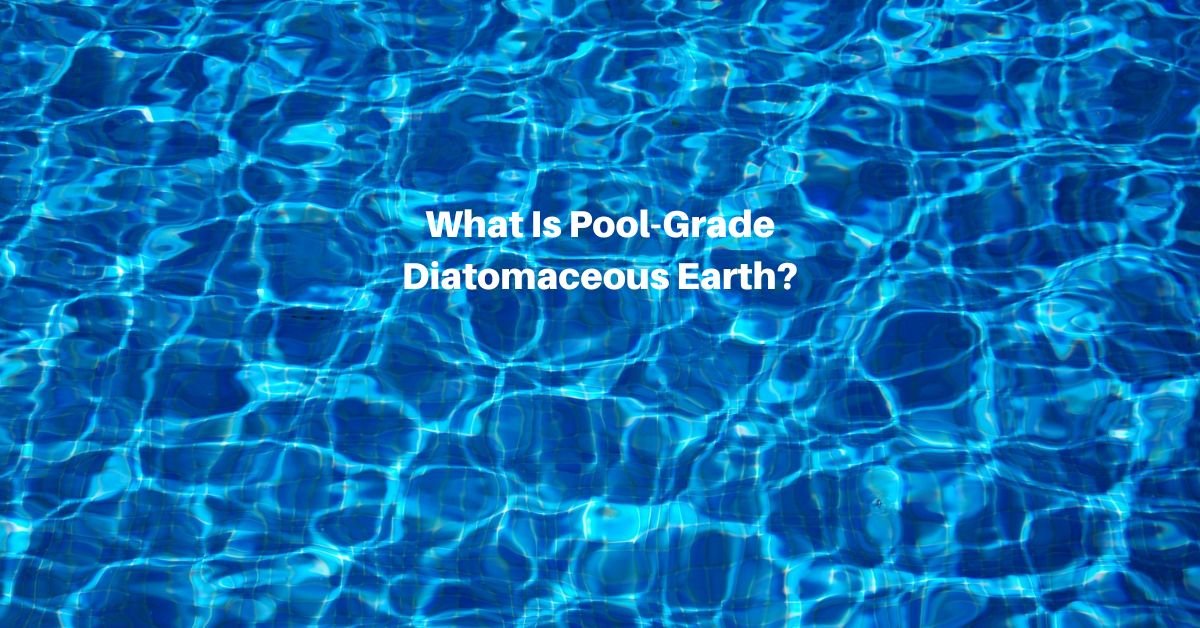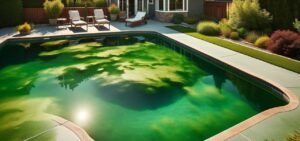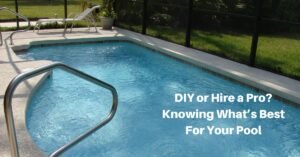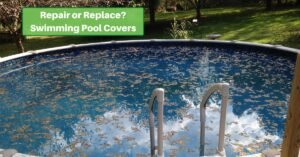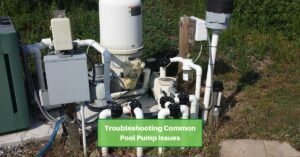Diatomaceous earth pool filters are the best among the common pool filter types, but what exactly is diatomaceous earth? What makes it so useful for pools as well as for gardening? Let’s look at where this material comes from and how it’s used to keep your pool sparkling clean.
Gardeners sometimes use diatomaceous earth (DE), but here, we will focus on the kind used for swimming pool filtration.
What is Pool-Grade Diatomaceous Earth?
DE occurs naturally. It comes from the skeletal remains of diatoms that lived in ancient bodies of water and now forms soft, siliceous sedimentary rock. Silica deposits are mined today to make diatomaceous earth for pool filters, gardening, and other uses.
The rock crumbles easily into a fine white to off-white powder, which is how you’ll buy your DE for your pool.
Pool-grade diatomaceous earth is a specific type of DE. It’s heat-treated and activated for use in filters. The heating process hardens the diatom exoskeletons, creating a better filtering agent.
The high temperatures also turn the silicon dioxide within the DE into crystalline silica, which forms them in a way that will help them “catch” contamination in your swimming pool.
How Does Pool-Grade Diatomaceous Earth Differ from Food-Grade Diatomaceous Earth?
The main difference between pool-grade and food-grade DE is their treatment and intended use. Pool-grade DE is calcined, meaning it has been heat-treated and activated for pool filters. This process hardens the diatom exoskeletons, creating a better filtering agent.
On the other hand, food-grade DE is not calcined. It’s composed mainly of amorphous silica, making it safer for use in homes, yards, or gardens.
How is Pool-Grade Diatomaceous Earth Used in Swimming Pools?
DE pool filters offer the best filtration for residential swimming pools. These filters have internal elements coated with DE, creating “filter cakes” that strain out insoluble contaminants, including dirt, algae, and even some bacteria. The DE powder is so fine that it filters out many microscopic pollutants.
With a diatomaceous earth pool filter, the DE coats the filter cloth. Water passes over the filter grids, allowing the DE particles to capture even the tiniest dirt particles.
This mechanical process provides brilliant clarity and eliminates potentially dangerous contaminants.
Be sure to follow your filter’s instructions carefully because using too much DE in your filter may cause issues, including a clogged skimmer, turning the pool cloudy, and reducing the circulatory pressure in the pool to the extent that it could break your pump eventually.
How Long Does Pool-Grade Diatomaceous Earth Last in a Filter?
The lifespan of pool-grade DE in a filter can vary. Some sources say that DE can last for up to 10 years. However, replacing the filter element every two years is usually suggested for maximum performance.
How to Change and Dispose of Pool-Grade Diatomaceous Earth?
Changing and disposing of pool-grade DE should be done carefully to avoid health risks. Here are some steps to follow:
- Wear Protective Gear: Always wear a mask and gloves when handling DE to protect your lungs and skin.
- Remove the DE: Use a vacuum with a HEPA filter to remove the DE from the filter. Clean your filter away from places where it could reach the groundwater suother pply, like in the street or near a storm drain.
- Dispose of the DE: You can throw the DE in the trash after removing it.
- Replace the DE: After cleaning the filter, replace the DE according to the manufacturer’s instructions.
Pool-grade DE is toxic to people and animals; only use it for its intended purpose. Always handle it carefully to protect yourself and the environment.
Cost and Comparison to Other Filters
DE filters offer the best filtration ability among the major options for pool filters, although they’re also more expensive. It can sift out particles as little as 2-3 microns. They can go months without needing to be backwashed or cleaned. However, you must add fresh DE filter media after each backwash.
Pool-grade diatomaceous earth is an effective and widely used filtration agent for swimming pools. It requires careful handling and disposal due to its toxicity. Still, simple safety steps allow you to handle it without problems. You’ll appreciate all it brings to your pool!

